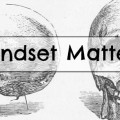I recently came across an informative law review article entitled “Hope, Again: Hope Theory in Bar Exam Preparation” (48 Duq. L. Rev. 513) by Professor Rebecca A. Cochran.
Prof. Cochran’s basic thesis is that people who are “high hope” individuals tend to do better on tests, but people who are lower hope individuals can learn hopeful strategies in order to be more successful on the bar exam.
What is hope?
Using the definition of psychologist Dr. C. R. Snyder, the creator of “hope theory,” Cochran defines hope as “a mental set in which we have the willpower to move toward a goal and the way-power or mental capacity to construct one or more effective plans or paths to reach that goal.”
Traits of High Hope Individuals
In general, high hope individuals have a strong sense of mental energy, feel that they can control results using internal sources of power, and perceive themselves to be problem solvers. High hope people tend to be competitive because they enjoy the chance to test their skills. They have a healthy sense of self-esteem, and their normal mental state is characterized as one of full concentration, engagement, and high energy.
High hope people typically have well-defined goals and are able to create small steps or processes to achieve those goals. They will view an obstacle, such as an examination, as simply one step in the process of achieving their goal rather than an absolute or fatal step that will put into the achievement of their goal.
Finally, when under stress, high hope people typically become very task oriented and will try various and alternative ways to achieve their desired goal.
Creating Hope
Prof. Cochran discusses how most students who enter law school have a hopeful mindset. However, as the grind of law school begins to take its toll, many students complete law school having a diminished sense of hope or having lost all hope. Cochran says that without hope, passing the bar exam is difficult at best.
Consequently, Cochran suggests five main ways in which to engender hope in bar exam students:
- help students formulate or reframe goals,
- increase students’ autonomy,
- model the learning process,
- help students understand grading as feedback rather than evaluation, and
- model and encourage agentic thinking.
Formulate or Reframe Goals
Cochran discusses how much is made of law school GPA and LSAT scores as predictors of bar exam outcomes. But, says Cochran, studies have shown that these two predictors only accurately predict bar exam outcomes 32% of the time, meaning that additional variables affect 68% of bar exam outcomes.
 Among the other predictors of bar exam outcomes are: age, gender, race and ethnicity, family obligations, financial hardship, working during bar study, presence or absence of a firm intent to practice law, level of effort during law school, law school ranking, seeking exam accommodations for the bar exam, academic services offered during law school, each state bar’s “cut score”, bar passage programs offered during and after law school, use of commercial bar review courses, diligence during bar preparation, and a variety of psychological factors including self-handicapping, social support, and test anxiety.
Among the other predictors of bar exam outcomes are: age, gender, race and ethnicity, family obligations, financial hardship, working during bar study, presence or absence of a firm intent to practice law, level of effort during law school, law school ranking, seeking exam accommodations for the bar exam, academic services offered during law school, each state bar’s “cut score”, bar passage programs offered during and after law school, use of commercial bar review courses, diligence during bar preparation, and a variety of psychological factors including self-handicapping, social support, and test anxiety.
Cochran’s point in listing all of these factors is to argue that to the extent you can work to turn one of these factors in your favor, you should do so. Obviously, you cannot decrease your age or change your gender, race or ethnicity, but you can work on being diligent with your bar exam preparation and work to lessen the influence of negative psychological factors.
Furthermore, Cochran points out that bar exam skills and tasks are often completely different from the skills and tasks learned during law school. Therefore, the need to learn new skills and take on new tasks should be seen as a chance to build on or to create skills not fully developed during law school. Thus, even if you were not overly successful in law school, the need for each bar exam student to learn new skills should be seen as effectively leveling the playing field and restoring hope of bar exam success to all.
Student Autonomy
Cochran acknowledges that there is likely to be very little student autonomy in bar exam study because there is a closed universe of what needs to be learned. However, there is a choice about how to learn the material. Cochran suggests bar exam students explore various ways of studying for the bar exam and choose to use those methods that resonate best with them.
Modeling the Learning Process
Cochran suggests that students should be encouraged to develop a step-by-step process in response to each different question format that they will face on the bar exam. Students should experiment with various different processes and determine which one is best for their consistent use.
As an added bonus, the development of a process can also serve to combat exam anxiety or panic. Once a process has been memorized, that process can be accessed as a source of stability and certainty should feelings of anxiety or panic arise. (This is reminiscent of anchoring.)
Encouraging practice and providing feedback
Cochran points out that practicing for the bar exam is one variable that favors success for all bar exam students. Practice should be viewed as a means of learning content and the bar exam analytical process rather than simply a way to evaluate the progress of one’s studies. The issue during practice tests is not only how much you know at that moment, but how much you are continuing to learn in advance of the bar exam.
Therefore, to the extent that one’s bar review prep class does not provide sufficient and meaningful feedback, a bar student may wish to seek out a tutor who can provide that feedback and the consequent positive reinforcement of hope.
Encouraging Agentic thinking
Another variable for bar exam success that affects all bar exam takers is the ability to encourage hope and to recognize (and remedy) when the stress of bar exam study is undermining hope. Cochran suggests seeking out social support from peers or understanding bar exam faculty. One might also consider speaking with a therapist who has experience with exam anxiety. Websites with positive bar exam stories — as opposed to cynical and anxious postings — can also be a good source of hope.
Cochran also suggests that visualizing the experience of the days of the bar exam also offers hope and serves to reduce the bar exam anxiety. Likewise, participating in simulated exams that mimic test conditions and the duration of the actual exams can help to reduce fear and anxiety as the exam approaches.
Concluding thoughts
I think Cochran’s thesis that hope is important to bar exam passage is a valuable one. I especially like the rigor with which she breaks down the numerous variables that can affect bar exam success. By learning that there are many ways to increase one’s chances of success, it is much easier to be hopeful and to persevere through the seemingly endless weeks of bar exam preparation.
I was also encouraged to read Cochran’s analysis concluding that psychological preparation, including visualization and anticipation of test conditions, is one of the key factors for increasing hope and the likelihood of bar exam success.
If you feel like you need a boost in your hope levels, why not try applying some of the ideas discussed in this post?
***
[Photos: http://www.flickr.com/photos/polsifter/4047982682/ and http://www.flickr.com/photos/lululemonathletica/3876552794/]
P.S. -- Want a FREE copy of my Bar Exam Mind audiobook?
You can get a free copy of my audiobook when you sign up for a free trial at Audible. Get the details by clicking here.






